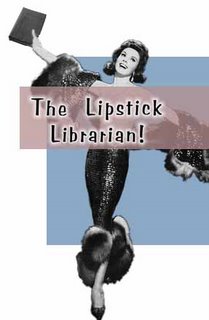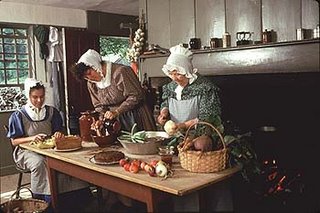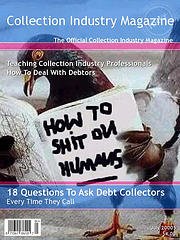
What is a librarian? I have clear notions of what librarianship is about:
* service,
* empowering patrons,
* locating, securing and managing information ...
* assisting users to find it easily when they need it,
* managing staff, budgets and space to effectively and efficiently achieve these,
* reporting clearly to our institutions on our work on their behalf, including...
* marketing and public relations.
I feel that the culture of librarianship is distinctly different from other information professions such as computer scientists and IT folks. Our helping culture generally is something I treasure about the profession, though I also recognize that we can easily tip over into what current psych-lingo characterizes as co-dependent behavior. Basically, that means, we over-help patrons, making their problems our problems. But overall, I am very proud to belong to such a service-oriented profession. We are collaborators and helpers, and that is good.
Apparently, many library educators feel that the profession is in crisis. (See, for instance, Satellite national teleconference, “Confronting the Crisis in Library Education; A National Teleconference,” hosted by ALA President Michael Gorman (6/9/2006), Link. Available for purchase on video or DVD). And I just finished reading two unnerving articles in a journal:
“The Crux of Our Crisis,” by John Philip Mulvaney and Dan O’Connor, American Libraries, vol. 37, No. 6, June/July, 2006, pp. 38-40.
“Why Survival is Not Enough,” by Richard J. Cox, American Libraries, vol. 37, No. 6, June/July, 2006, pp. 42-44.
The authors lament the lack of consensus on a core curriculum and central values for library schools. I followed up their comments by looking at the ALA, ALISE and AALL websites for statements of core competencies and values. While there is no core curriculum in the ALA accreditation standards for library and information science schools, I did find several statements of core competencies.
I think the vagueness is largely due to the incredible speed with which information technology is developing and changing now. My colleague at Suffolk who directs the university library is an adjunct at Simmons School of Library and Information Science, and recently commented that he thought the MLS as a requirement for librarianship was dying. So, what do our professional organizations say it takes to be a librarian?
Well, ALA and AALL do require a master's degree in library science. Oddly enough, though, it seems that teaching in a library and information science school does not require a library science degree. Neither ALA nor ALISE (Association of Library and Information Science Education) require a library or information science degree in order to teach in such a program. The articles cited above specifically mention a trend in library schools to employ professors with non-LIS degrees.
For another thing, the ALA curriculum standards don't even mention books or libraries in their general statement:
The curriculum is concerned with recordable information and knowledge, and the services and technologies to facilitate their management and use. The curriculum of library and information studies encompasses information and knowledge creation, communication, identification, selection, acquisition, organization and description, storage and retrieval, preservation, analysis, interpretation, evaluation, synthesis, dissemination, and management.
ALA Link
AALL has a separate statement to help potential law librarians evaluate the sort of education they will need and which schools might better provide it. This statement of general and subject specific competencies is more to the point:
Although these general competencies are required by librarians employed in all types of libraries, library instruction must also include and emphasize the components of these areas that are specific to law librarianship.
Areas of general competency include: 1) Reference and Research Services; 2) Library Management; 3) Collection Management; 4) Organization and Classification. ...
An understanding of the origins, development and present state of Anglo/American law and legal literature is crucial to the work of the law librarian. Graduate library education for law librarianship must, at a minimum, provide basic competencies in: 1) the Legal System; 2) the Legal Profession and Its Terminology; 3) Literature of the Law; 4) Law and Ethics. ....
Approved by the AALL Executive Board, November 5, 1988
AALL link
I was fascinated to locate a page by the Bureau of Labor Statistices explaining librarianship, and noting the upcoming wave of retirements which make this a hot profession. They state:
* A master’s degree in library science usually is required; special librarians may need an additional graduate or professional degree.
* A large number of retirements in the next decade is expected to result in many job openings for librarians to replace those who leave.
* Librarians increasingly use information technology to perform research, classify materials, and help students and library patrons seek information.
Nature of the Work
The traditional concept of a library is being redefined from a place to access paper records or books to one that also houses the most advanced media, including CD-ROM, the Internet, virtual libraries, and remote access to a wide range of resources. Consequently, librarians, or information professionals, increasingly are combining traditional duties with tasks involving quickly changing technology. Librarians assist people in finding information and using it effectively for personal and professional purposes. Librarians must have knowledge of a wide variety of scholarly and public information sources and must follow trends related to publishing, computers, and the media in order to oversee the selection and organization of library materials. Librarians manage staff and develop and direct information programs and systems for the public, to ensure that information is organized in a manner that meets users’ needs.
Most librarian positions incorporate three aspects of library work: User services, technical services, and administrative services. Still, even librarians specializing in one of these areas have other responsibilities. Librarians in user services, such as reference and children’s librarians, work with patrons to help them find the information they need. The job involves analyzing users’ needs to determine what information is appropriate, as well as searching for, acquiring, and providing the information. The job also includes an instructional role, such as showing users how to access information. For example, librarians commonly help users navigate the Internet so they can search for relevant information efficiently. Librarians in technical services, such as acquisitions and cataloguing, acquire and prepare materials for use and often do not deal directly with the public. Librarians in administrative services oversee the management and planning of libraries: negotiate contracts for services, materials, and equipment; supervise library employees; perform public-relations and fundraising duties; prepare budgets; and direct activities to ensure that everything functions properly.
Occupational Outlook Handbook
The Lipstick Librarian (yay!) link explains that librarians in the 19th century were envisioned as "handmaidens of the library." LL states that lipstick librarians decided they would rather be "mistresses of the library" and fashionable ones at that!
Terry Pratchett, author of the Discworld fantasy series, has the Librarian at the Unseen University for wizards as an orangutan. Pratchett posits "L Space" in the library, allowing infinite shelving into multiple dimensions (how handy to solve space problems!). The Librarian was turned into an orangutan by the influence of so many magical books, but since he's the only one who knows where all the books are, and can so easily reach the high-up shelves, he retains his position.
And of course, Nancy Pearl, of the Seattle Public Library and Book Lust, both the book versions and the National Public Radio show, is the model for the "Librarian Action Figure" from Archie McPhee and Co. Librarians are a sometimes a bit irritated at the shushing, dowdy stereotype that some saw embodied in the figure. But Nancy Pearl is librarianship's rock star figure these days. Here is a link to another, "Warrior" librarian action figure. Evidently based on a character, Giles, from the Buffy the Vampire television series. And there are also Marion the Librarian from The Music Man, Conan the Librarian and countless librarian images, stereotypical or not. I think our profession is generally given credit for being selfless, public-spririted and well-educated. Overall, that's not bad -- though better-paid would be nice to add.
Do you have an opinion on how to define our profession? I'd love to hear your thoughts!













